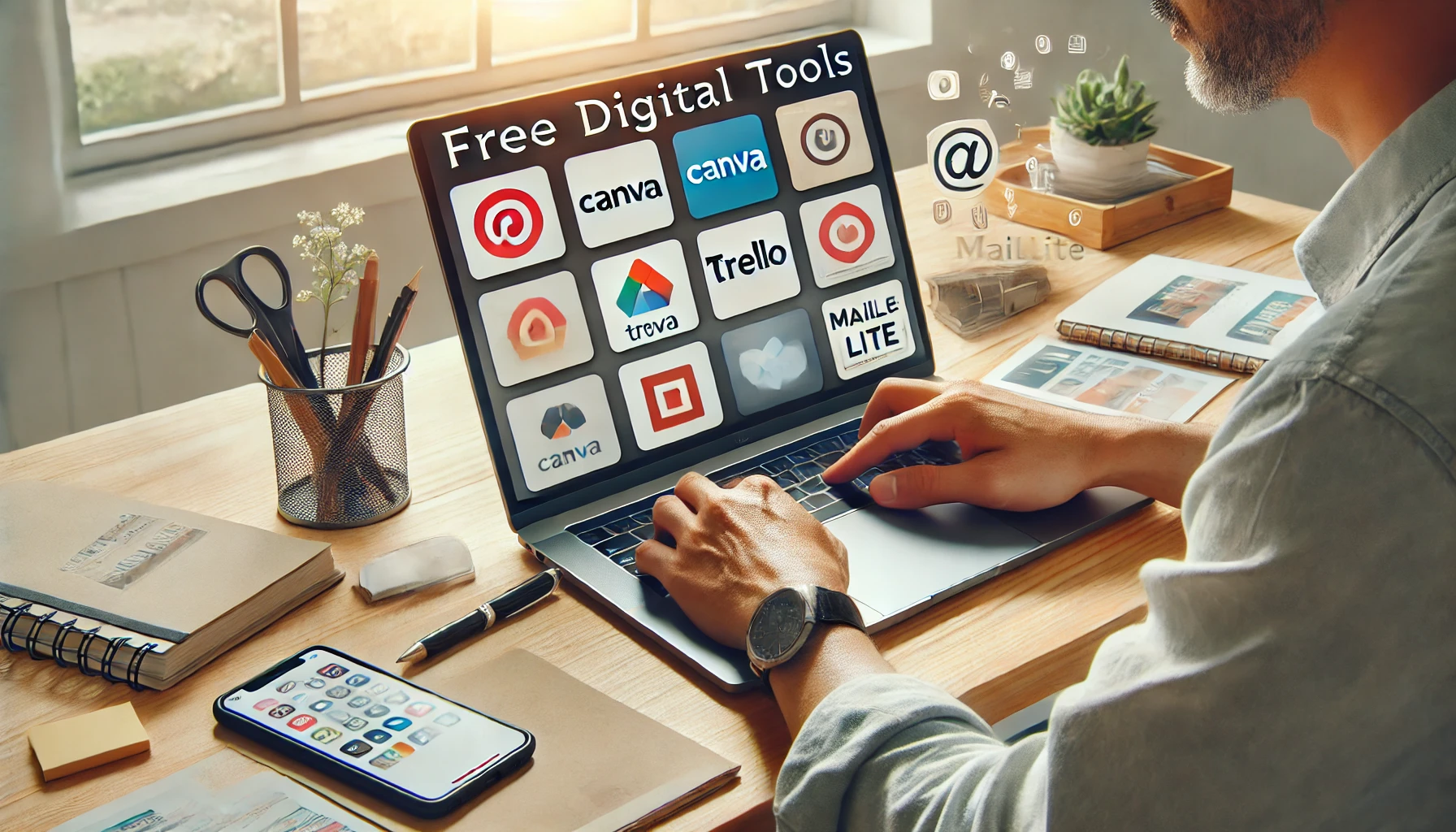When you’re starting a business on a tight budget, every cent counts. The good news? There are countless free tools available that can help you organize, create, promote, and grow your business—without spending a dime.
Whether you’re a solo entrepreneur, freelancer, or side hustler, here’s a list of essential free tools that every small business owner should know about.
1. Canva – Design Anything Easily
What it does:
Canva is an easy-to-use graphic design platform for creating logos, social media posts, presentations, flyers, business cards, and more.
Why it’s great:
- Beginner-friendly interface
- Thousands of free templates
- Free access to basic features (Pro version optional)
Use it for:
Building your brand identity, creating marketing materials, and designing content with a professional look—even if you’re not a designer.
2. Trello – Organize Your Projects
What it does:
Trello is a visual task and project management tool that uses “boards” and “cards” to help you organize your business tasks.
Why it’s great:
- Simple drag-and-drop system
- Great for daily to-dos or big project planning
- Collaborate with a team if needed
Use it for:
Managing content calendars, product development, client tasks, or your weekly goals.
3. Google Workspace (Drive, Docs, Sheets, Forms)
What it does:
Google offers a full suite of free productivity tools that are cloud-based and great for collaboration.
Why it’s great:
- Accessible from any device
- Real-time editing and sharing
- Perfect for teams or solo use
Use it for:
Creating documents, tracking finances, collecting feedback with forms, storing important files, and collaborating remotely.
4. MailerLite (Free Email Marketing)
What it does:
MailerLite lets you build email campaigns, landing pages, and automation flows to engage your audience.
Why it’s great:
- Free for up to 1,000 subscribers
- Drag-and-drop email editor
- Automation features included in the free plan
Use it for:
Building an email list, sending newsletters, and creating lead magnets or welcome sequences.
5. WhatsApp Business
What it does:
A version of WhatsApp made for businesses, allowing you to organize customer conversations and showcase your catalog.
Why it’s great:
- Free to use
- Automated messages and quick replies
- Personal yet professional communication
Use it for:
Customer support, product inquiries, appointment scheduling, and closing sales directly.
6. Google My Business (Google Business Profile)
What it does:
Helps your business appear in Google Search and Maps results.
Why it’s great:
- Increases visibility in your local area
- Allows reviews, business info, and contact updates
- Free and effective for foot traffic or local services
Use it for:
Getting found on Google by people searching for businesses like yours nearby.
7. Bitly – Shorten and Track Links
What it does:
Bitly lets you create short, branded links and track how many people click them.
Why it’s great:
- Clean links for social media and emails
- Basic analytics included for free
Use it for:
Tracking the performance of promotions, email campaigns, or Instagram bios.
8. AnswerThePublic – Find Content Ideas
What it does:
Generates real search queries based on a keyword, showing what people are asking about a topic.
Why it’s great:
- Reveals customer intent and curiosity
- Great source of blog/video/social media ideas
Use it for:
Understanding your audience’s questions and building valuable content that answers them.
9. Zoom – Virtual Meetings and Webinars
What it does:
Video conferencing platform used for online meetings, workshops, and calls.
Why it’s great:
- Free 40-minute meetings (1-on-1 is unlimited)
- Screen sharing and recording options
Use it for:
Client calls, team check-ins, coaching sessions, or webinars.
10. Notion – All-in-One Workspace
What it does:
Notion combines notes, databases, calendars, and task boards into one powerful tool.
Why it’s great:
- Flexible and customizable
- Free for personal use
- All-in-one space to plan and think
Use it for:
Organizing your business plan, product ideas, SOPs (standard operating procedures), and even personal goals.
Bonus Tips: How to Make the Most of Free Tools
- Don’t overwhelm yourself: Choose 2–3 tools to start with. Add more as you grow.
- Stay organized: Use one central tool (like Trello or Notion) to keep track of everything.
- Sync and connect tools: Many tools integrate with each other—explore automation options.
- Upgrade only when needed: Stick with the free version as long as possible. Only pay when it adds real value.
